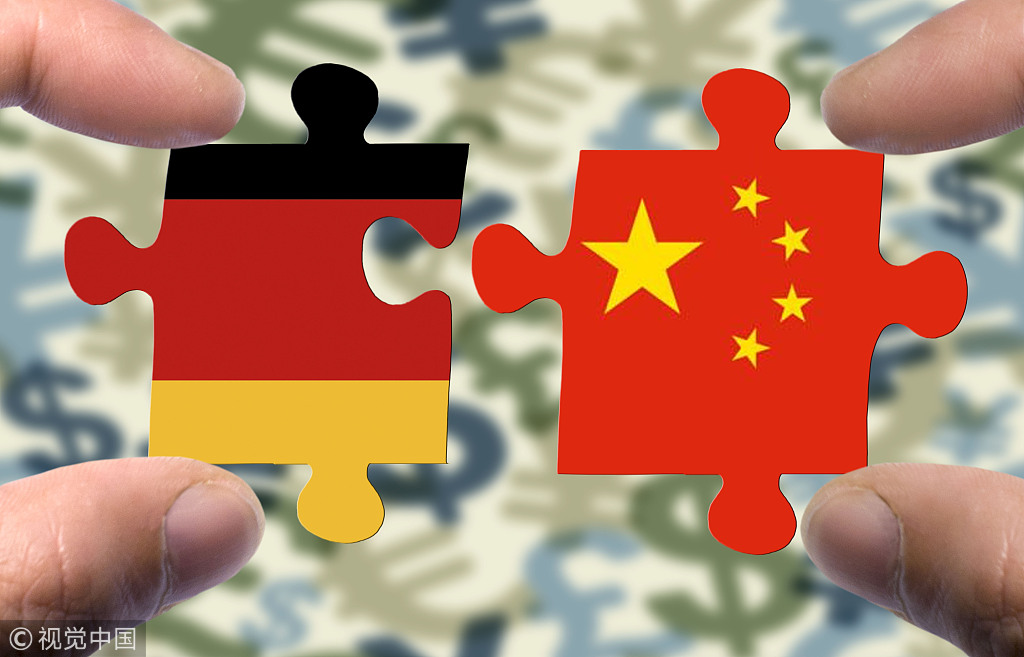Strategies work together to generate business growth
By Zhong Nan | China Daily | Updated: 2018-05-24 10:18

Industrial automation and internet-connected technologies, encouraged by the Made in China 2025 strategy and Germany's Industry 4.0 concept, will generate new growth momentum for companies in both countries to build closer partnerships, according to senior company executives.
In 2012, the German government set up Industry 4.0 working groups as a means of pushing its companies to utilize new technology and thinking to maintain its pre-eminence in manufacturing.
The "third generation" of manufacturing refers to the use of automation and early computers; thus, the phrase 4.0 refers to a phase of manufacturing in which automation and interconnection play a far greater role in making the manufacturing process more efficient.
For its part, China has been implementing the Made in China 2025 plan to modernize the country's manufacturing through technological upgrades, knowledge-based industries and environmentally friendly development.
Edouard Bouee, chief executive officer of Roland Berger Strategy Consultants, pointed out that China has set out to improve and upgrade its industries, and that as a result, the Chinese economy is increasingly developing into a complex business environment. Part of that complexity, he said, is based on disruptive innovation in manufacturing.
Many countries are also pursuing similar strategies. The United States has proposed a manufacturing industry renaissance program. Japan, France and the United Kingdom also have their own strategies or programs to revitalize manufacturing and thereby stimulate exports.
Eager to enhance its developing ability, China will completely open up its general manufacturing sector, and access to sectors such as high-tech industrial products, telecommunications, medical services, education, elderly care and new-energy vehicles will be expanded, according to the annual government plan announced in early March.
"The Made in China 2025 strategy brings equal opportunities to foreign and domestic companies and the Industry 4.0 concept is definitely welcomed," said Tu Xinquan, director of the China Institute for WTO Studies at the University of International Business and Economics in Beijing.
Stephan Kothrade, president and chairman of BASF China, said the German group found that innovation in chemistry enables economic, environmental and social development to play a key role in meeting the needs of China's growing population in a period of rapid urbanization.
With a total investment of 200 million euros ($236.54 million), BASF will begin to operate new research and development facilities including a new automotive application center and a process catalyst research center in Shanghai by the end of this year.
"In recent years, a number of Chinese local champions have expanded their markets globally. From infrastructure building to automotive manufacturers, we are excited to bring our innovative solutions and international experience to support them along this journey," Kothrade said.
Chen Yudong, president of Bosch in China, said with the transformation and upgrade of manufacturing towards connected production, industrial big data will play a crucial role for the foreseeable future.
"Collecting and analyzing big data and exploring its potential value can help companies truly achieve smart manufacturing by increasing efficiency and flexibility, improving quality and reducing costs," he said.
Dozens of Industry 4.0 projects are already running in Bosch's manufacturing sites at 15 locations across China, including the cities of Suzhou, Changsha, Wuxi, Nanjing, Shanghai and Changzhou.
























